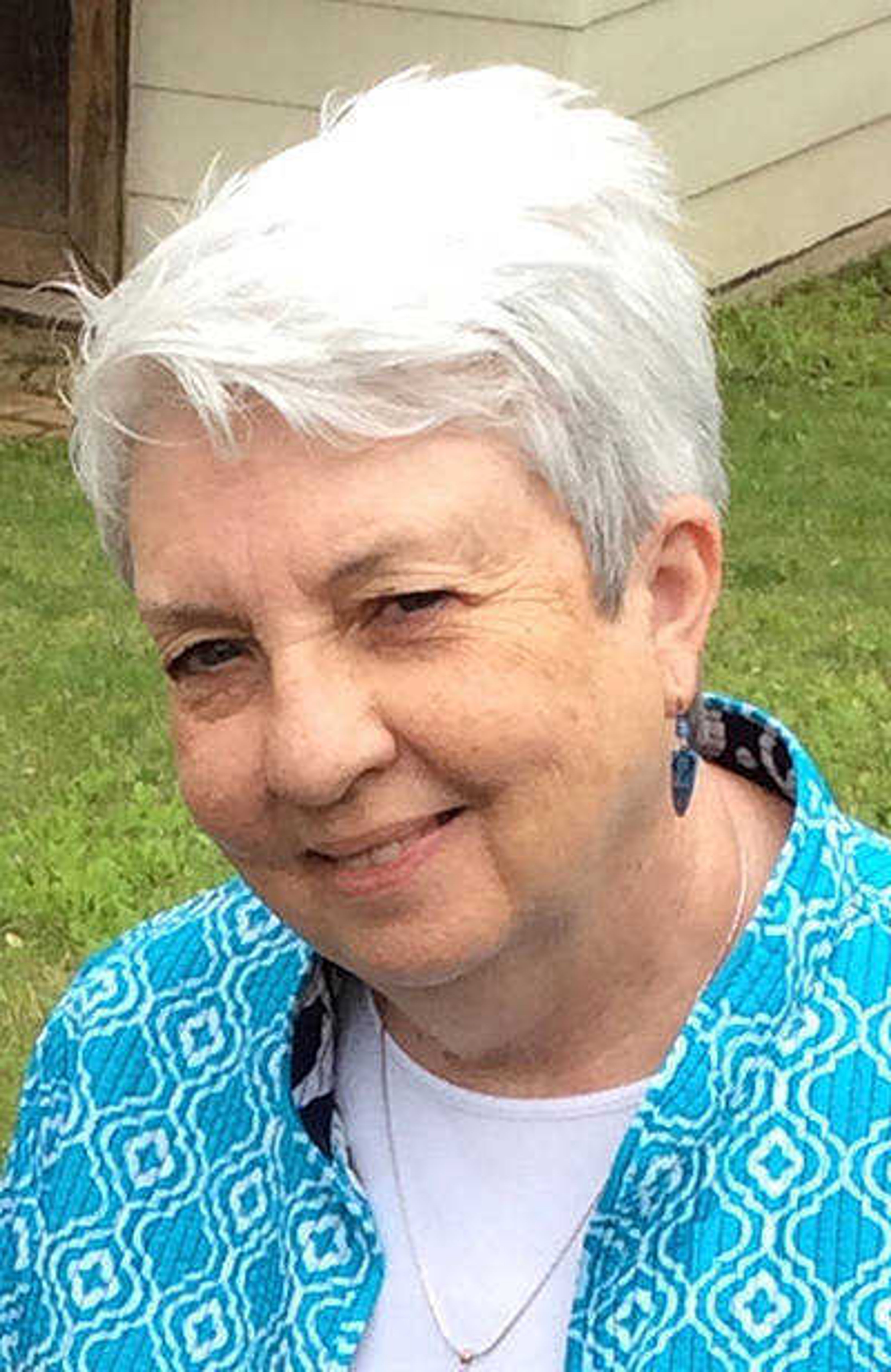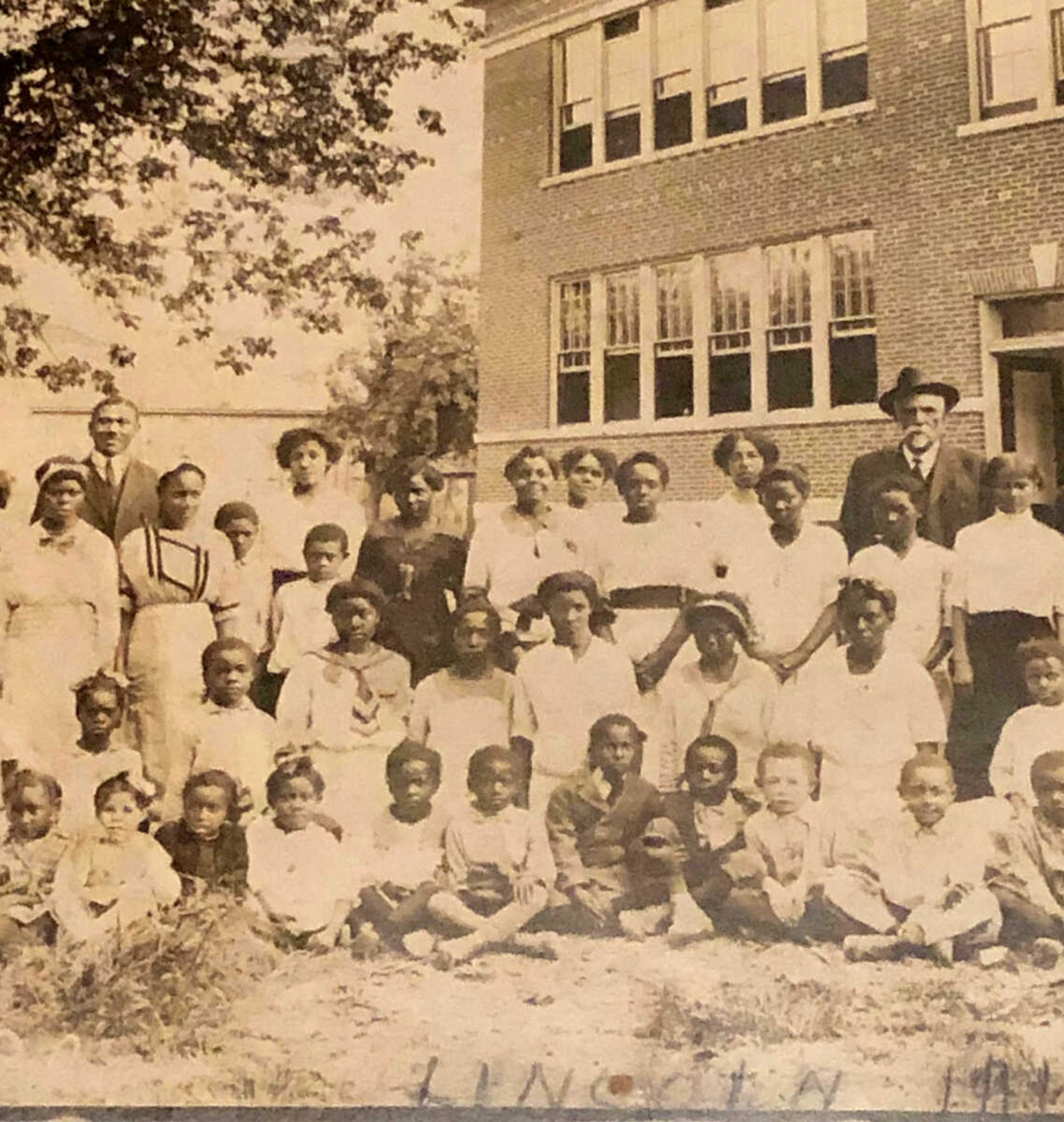Professor and community leader: John S. Cobb
His commanding presence transformed rowdy classes into disciplined learning experiences. Though not the first teacher of Black students of Cape Girardeau, John Solomon Cobb became a foremost educator of his generation, a Missouri pioneer for Black education. "An ardent student, conversant with the classics" with an outstanding personal library, his undisputed standard for excellence developed and improved the education and the educators of the region...
His commanding presence transformed rowdy classes into disciplined learning experiences. Though not the first teacher of Black students of Cape Girardeau, John Solomon Cobb became a foremost educator of his generation, a Missouri pioneer for Black education. "An ardent student, conversant with the classics" with an outstanding personal library, his undisputed standard for excellence developed and improved the education and the educators of the region.
Prior to his 1849 birth in Tennessee, his enslaved mother, Arminda, had been sold away from kin near Jackson, Missouri, and the boy yearned to know the place. An eager learner, John was schooled (illicitly) by his master's son, but denied rudimentary education until his late teens. In October 1866, the United Presbyterian Church, in cooperation with the Freedmen's Bureau, re-opened Maryville College, an historically integrated school in southeast Tennessee. In freedom, John S. Cobb studied there, and it is assumed where he further honed his love of learning and teaching skills.
Cobb moved to Jackson circa 1878, possibly seeking family connections. At Jackson's Lincoln School, Cobb served three years as teacher/principal before he accepted a similar post at Cape Girardeau's Lincoln School. Cobb taught Cape Girardeau students for 38 years. In 1890, as principal, he oversaw the transition of Cape's colored school from rented/borrowed classrooms to the construction of the new two-story brick Lincoln school on Merriwether Street.
Cobb married Elizabeth Eulenberg in 1883. They celebrated births of four children, but mourned three who died young. Lizzie's 1894 death left him a widower and single father to Robert. He married Mary A. Jackson in 1900. A half brother, the Rev. Nelson of North Carolina, attended Cobb's 1919 funeral and seems to be the only family known from his generation.
Beyond his investment in the children of his racial community, Cobb involved himself in many aspects of community life. His testimony is found in the pension file affidavits of area United States Colored Troop veterans, dating from the 1890s. His leadership of the annual Colored Teacher's Institute trained generations of regional teachers. He served as presiding officer of county conventions, nominating political candidates, but rejected his own nomination for justice of the peace.
Cobb chose to be a member of First Presbyterian Church in Cape (majority white), serving as an ordained elder until the Black membership declined. He often preached for pastors away. Cobb affiliated with St. James AME Church about 1917.
Cobb, at age 65, turned over the principalship of Lincoln School to O.O. Nance in 1915, but continued to teach primary grades at Lincoln school until his death in 1919. His long, unblemished tenure (1881-1919) is credited for educating three generations of Black citizens of Cape Girardeau.
In 1925, the educator's life and legacy in Cape's history motivated the city's school board to supersede the name of Lincoln for the segregated high school. John S. Cobb High School remained a vibrant center of Cape's Black community life until fire forced it to shutter and close in 1953.
Connect with the Southeast Missourian Newsroom:
For corrections to this story or other insights for the editor, click here. To submit a letter to the editor, click here. To learn about the Southeast Missourian’s AI Policy, click here.











